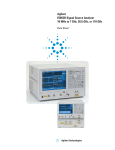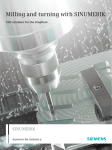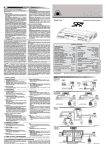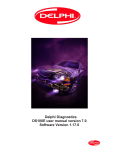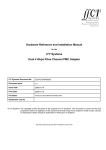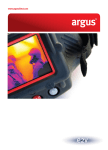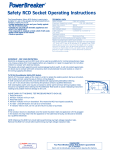Download SC series user manual Ver1 - Roc
Transcript
SC SERIES SOLAR CONTROLLER USER MANUAL Ver 1.0 (for SC-2420, 2430, 2440, 2450, 2460,4840 and 4860) 1 2 Solar Controller “SC” series solar controller USER MANUAL Congratulations on choosing a ROC-SOLID “SC” series solar controller. To ensure your safety and to get the most from your purchase, please read these instructions carefully before use. Safety First Potenal safety concerns have been considered in the design of the ROC-SOLID solar controller. Your ROC-SOLID solar controller is designed to convert power from your PV cell/array and as such may produce significant potenal energy at the output load terminals, even when a load is not connected. For this reason the correct sequence of connecon and disconnecon of the solar controller must always be followed. Below is a quick guide to help in the correct installaon of your ROC-SOLID solar controller. Installation considerations: 1) 2) 3) 4) We recommend installation of this product be conducted by qualified professionals. Systems must be designed so that the nominal voltage of solar panel, battery and loads are the same. (ie all 12V, 24V or 48V not a mixture) Systems must be designed so that the rated current of solar panel and the load(s) are smaller than the controller rating. Choose an installation location for the controller which: A) Is out of reach of children B) Is out of direct sunlight and rain C) Is away from any volatile or explosive environment D) Is away from electrical heaters, or any other heat source E) Is away from wet areas or areas subject to rain ingress F) Minimizes the length of cables required for the Solar panel, battery and load connections. Installation check’s: 1) Make sure the positive and negative terminals of the Solar panels, Battery and Loads are all connected correctly, are clean and are tightened firmly. 3 2) Check the diameter of the connecting cable is adequate for the requirements of the current. Wire which is too small will result in voltage loss and poor system performance. It may ultimately result in fire as the wire overheats and breaks down. ROC-SOLID suggest the following minimum wires cross sectional sizes: Model Number Wire size Model Number Wire size SC-2420 3mm2 SC-4840 6mm2 SC-2440 4mm2 SC-4860 8mm2 sc-2460 6mm2 Controller connections should be made in the following order: 1) 2) 3) Battery Solar Cell Load (ensure the load is “off” to minimize arcing on connection) (Note: disconnection must be made in the reverse order) Features The ROC-SOLID SC series solar controllers use a microprocessor to provide SOC (state of Charge) management functions, which in turn controls the charge current using PWM technology and controls the supply of power to the load(s) according to the voltage and capacity of battery. The controllers have the following functions: Standard Features: ∗ LCD display shows the battery volts, charging and load current alternately. ∗ Data logging of charge and discharge currents. ∗ Automatic system voltage sensing for 12/24V application ∗ 48V units are for 48v systems only. ∗ Default load off voltages are 12V system 10V off, 24V system 20V off, 48V system 40V off. ∗ Controller can simultaneously charge battery and supply load ∗ Reverse Polarity Protection for Solar panels. ∗ Lightning surge protection Battery control functions: ∗ ∗ ∗ ∗ ∗ On completion of charging, maintain the battery on “float” (user settable) Prevent the battery from over-charging. Prevent the battery from over-discharging. Reverse Polarity Protection for Battery. Automatic temperature compensation -3mV/degree C 4 Load control functions: ∗ ∗ ∗ ∗ Load over current protection, LCD display shows “Overload”. Load short circuit protection, LCD display shows “Short circuit” Automatic load disconnect at low battery (user settable) Automatic load reconnect upon battery voltage recovery (user settable) Connection Your ROC-SOLID solar controller has 6 terminals for connection to your battery, solar cells and load. These terminals are clearly marked for your ease of connection. Your battery, solar cells and loads all have separate earths (negative connections), never join them together. Caution during system testing! ◊ ◊ ◊ Do not illuminate solar panels with standard lights for testing. Do not use a DC power supply in lieu of solar panels. Ensure the battery is always connected first. Understanding the LED Status indicators Green LED on Red LED on Red LED is flickering Loads are normally working Battery is fast charging Battery is charged and in float condition. 5 Operation of you CS series Solar Controller Immediately following the initial power-up, the screen will display the model number of the controller for a few seconds, then default to the main screen below. Upon Initial start up the battery charge-off voltage, loads cut off voltage, Load-on Voltage of loads reset will be the factory defaults unless you have previously changed them. The solar controller has 5 buttons used to select the display mode and modify the default settings to the user requirements. These buttons are used as follows: MENU: Will progress the display to the next item on the menu Is used to increase the value (if it is variable) Is used to decrease the value (if it is variable) OK: RESET: Displays the instantaneous battery voltage, charge and load current Recovers the unit from over current load or short circuit conditions *Note: Pressing and holding down the MENU key for more than 5 seconds will restore the factory default settings 6 Activating the circular display mode No matter what is displayed on the screen you can press the “OK” button and the unit will begin to display the instantaneous measured battery voltage, Charge current and Load current in sequence. Each will be displayed for about 5 seconds. 7 Navigating the menu and changing settings Press menu repeatedly to cycle through the screens This is the controller temperature used for charge voltage compensaon This is the total Ampere Hours logged for the baery charging This is the total Ampere Hours logged from the baery to the load This is the controllers calculated “state of Charge” indicang the percentage condion of the baery This se ng is user definable. Use the and buons to change se ng This se ng is user definable. Use the and buons to change se ng This se ng is user definable. Use the and 8 buons to change se ng Resetting the controller If the controller display is showing either “Short circuit” or “Overload Reset” the controller will require manual resetting once the problem has been fixed. To clear these displays and reset the functionality of the controller, press the reset button. The controller will restart and if the problem has been rectified the controller will operate as normal. Restoring the Factory default settings To restore factory default settings press and hold the “MENU” button for 5 seconds. The display will show “Loading defaults” and the controller will restart using the default settings. 9 Technical Parameters Model SC-2420 SC-2440 SC-2460 Rated Voltage 12V / 24V Automatic voltage detection Max Solar current 20A 40A 60A Max Load current 20A 40A 60A Full charge cut out Voltage 13.7V/27.4V Default (user settable) Low voltage cut out voltage 10.5V/21V Default (user settable) Temperature compensation -3mv/ /cell No load loss ≤20mA ≤30mA (when configured in 12V system) (when configured in 24V system) Max wire diameter 6 mm2 8 mm2 Ambient temperature -25 Solar panel input voltage (working) 20V (12V System) 40V (24V system) *note: panel, battery and load nominal voltages should always be the same Solar panel Voc Max 50V Model to +55 SC-4840 SC-4860 Rated Voltage 48V Max Solar current 40A 60A Max Load current 40A 60A Full charge cut out Voltage 54.8V Default (user settable) Low voltage cut out voltage 42V Default (user settable) Temperature compensation -3mv/ /cell No load loss ≤40mA Max wire diameter 8 mm2 Ambient temperature -25 Solar panel input voltage (working) 60V Solar panel Voc Max 100V 8 mm2 to +55 10 Trouble Shooting Problem Green light goes out, the loads stops working, and LCD shows “Battery low” Reason Low battery voltage Possible solutions: 1) Disconnect the loads and restart the controller by pressing “RESET”. When the battery reaches the fully charged condition, reconnect the loads. 2) Increase solar panel’s power and/or increase battery capacity. Problem Green light goes out, the loads stops working, and LCD shows “Over load” Reason Solution Problem Overload Reduce the quantity of loads and then press “RESET” Green light goes out, the loads stops working, and LCD shows “Short circuit” Reason Solution The load has short circuited Remove the short circuited load or rectify the problem, then press “RESET” Problem Reason Solution Red LED goes out Battery is completely flat This condition is most often experience during the night when solar energy is not available to charge the battery. Careful calculations should be made to ensure the loads being operated have sufficient battery capacity and charging capacity for continuous operation. For any fault conditions not covered above, please contact your ROC-SOLID dealer. There are no user serviceable parts inside the controller. Attempts to repair a fault by untrained persons may result in undesirable and even potentially dangerous outcomes. If after contacting your ROC-SOLID dealer the failure mode is still persisting, the controller will need to be returned for repair/ replacement. 11 “ROC-SOLID” is a trademark of Ingenium Ruggedised Technologies, who is the master distributor/Agent for ROC-SOLID solar and ROC computing products www.roc-solid.com.au 12














